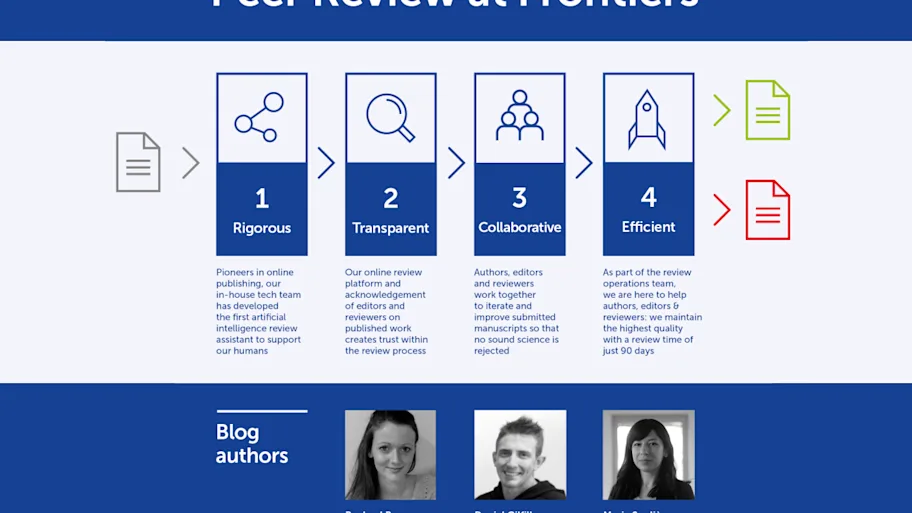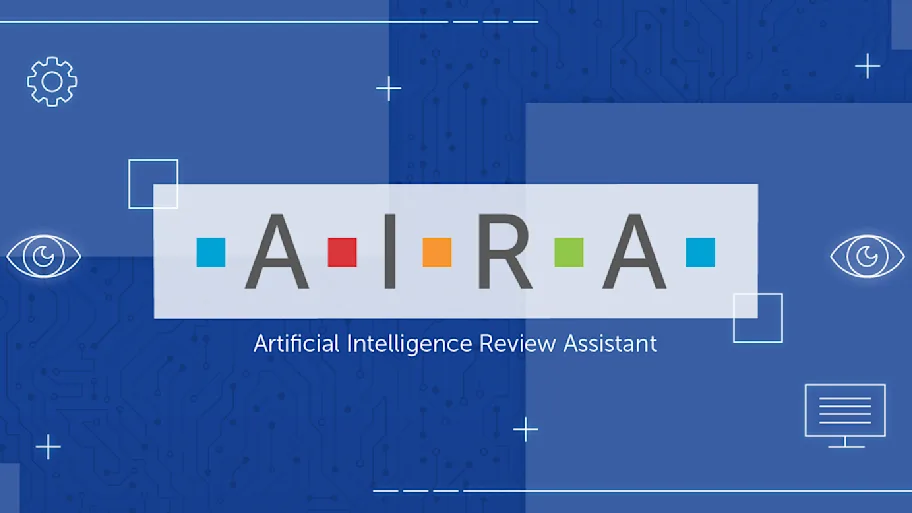
- Science News
- Frontiers news
- Research Integrity: Identifying and tackling peer review fraud
Research Integrity: Identifying and tackling peer review fraud
Author: Andrew Gardyne, Research Integrity Specialist
Robust peer review is a core component of the scientific publishing process. Readers need to know that the research content published throughout our portfolio of more than 100 journals has been meticulously assessed by experts in their respective fields. Given the implications published research can have, particularly in clinical fields, the importance of peer review cannot be overstated. This is a particularly pertinent topic considering the ongoing COVID-19 pandemic. The success of Frontiers’ mission - to make all science open - hinges on readers being confident that all our publications have undergone a rigorous and industry-leading review.
Therefore, anything that undermines readers’ confidence or trust in the robustness or validity of the peer review process in scholarly publishing is a serious threat to the wellbeing of scientific findings and discoveries. In these uncertain and challenging times, the ‘post-truth’ era so to speak, objectivity often feels under attack. Trust in the value of scientific research is particularly important in the context of the COVID-19 pandemic.
So that the planet can begin its recovery from this unprecedented event, people need to feel confident that the vaccines they are taking are safe and this is underpinned by published research. Thankfully, according to Statista, 86% of those responding to a survey in the UK in September 2020 said they trust the information from official scientists regarding COVID-19. We need to make sure systems are in place to ensure the effective regulation of our peer review process, including ones to root out and eradicate any conduct that may compromise the process, potentially damaging public trust in science.
Subversion of the peer review process can occur in several different ways. The Committee on Publication Ethics (COPE), of which Frontiers is a member, helpfully provides case studies and informative material designed to assist in detecting potential signs of this practice as early as possible. For example, noticing that a reviewer has left overly positive and similarly phrased reports for multiple assignments. Or, if a reviewer is consistently taking a very short time to recommend acceptance of a manuscript. Based on the work of our own Research Integrity team and the recommendations highlighted by COPE, we have created safety mechanisms designed to catch these issues as early as possible in the process.
A critical part of this effort is our Artificial Intelligence Review Assistant (AIRA). AIRA’s state-of-the-art algorithms allow quick detection of potentially problematic submissions and inform our further actions. For example, it can quickly bring to our attention when a submission is being authored, edited, or reviewed by someone who has previously been proven to have engaged in scientific misconduct e.g., by fabricating data or extensively plagiarizing a submission. It can also quickly identify when authors, reviewers and editors share affiliations, even if they have denied this. This spares the need for time-consuming manual checks and allows potentially problematic situations to be identified and actioned promptly.
For example, a recent case in a Frontiers journal was triggered when reports from a senior editor revealed multiple low-quality manuscripts were being recommended for publication in a specific section. These included submissions in which the experimental work appeared preliminary or descriptive, or where the figures/images included appeared below the minimum standard expected in a published article. After all the submissions were screened for quality by a panel of editorial board members, a deeper and more extensive investigation was carried out by our Editorial Office.
We forensically assessed the inter-relationships between the authors, reviewers, and editors of the manuscripts. We identified clear and consistent patterns throughout these submissions which raised red flags. For example, the editor of one submission appeared as an author on a submission edited by an author of the first submission. Taken together, this strongly suggested an organised effort to subvert the peer review system to boost the number of publications by the concerned individuals, which ultimately led to the rejection of the papers.
Another insidious practice that has been successfully identified and tackled within Frontiers journals is outright review falsification, sometimes involving identity theft. In one case, an author was caught after creating a fake identity to review their own submission! A defined workflow is put in place for when concerns are raised that reviewers and/or editors may not be who they say they are. This involves intensive checks to determine conclusively whether their professed identity is genuine, and severe consequences when clarification cannot be found.
We take issues that concern publication misconduct extremely seriously. In cases where evidence of compromised peer review is found retrospectively (e.g., undisclosed conflicts of interest between authors and reviewers, or a pattern of substandard review reports), this would likely lead to the publications concerned being retracted. As well as damaging the reputation of the journal, this would have potentially negative ramifications for the scientific careers of those involved.
If you are an author or editor and would like to know more about research integrity at Frontiers, do please get in touch!
Author bio: Originally from near Aberdeen in Scotland, Andrew studied at the University of Dundee (BSc Anatomy and Physiology, 2013), continuing at the University of Glasgow (MSc Human Nutrition, 2014). He joined Frontiers in 2019.






